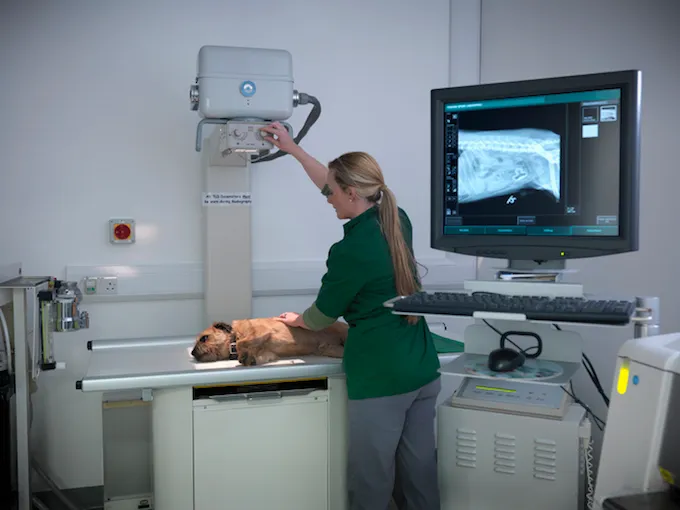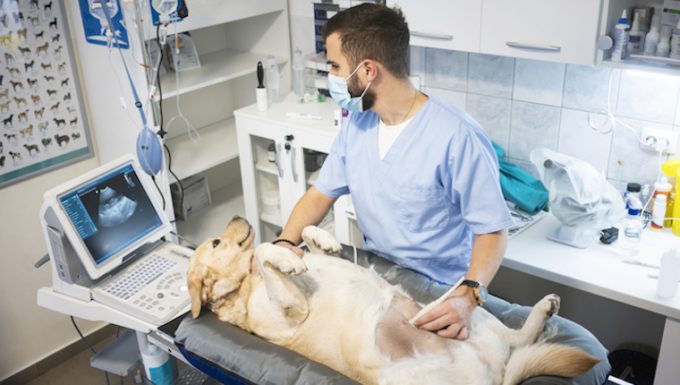Enlarged spleen in dogs is a condition that causes symptoms including diarrhea, loss of appetite, and collapse. The condition affects larger dogs the most.
Technically, the condition is usually a symptom itself of another underlying medical condition. For instance, inflammatory bowel disease (IBD) can cause the condition.
The condition is also called splenomegaly in medical terms.
If you see the signs of an enlarged spleen in your dog, then get to a veterinarian for a proper diagnosis and treatment.
Here’s what you should know about the symptoms, causes, and treatments for the condition.
Symptoms of Enlarged Spleen in Dogs
The condition produces a range of symptoms. Some of the most common symptoms include:
- Loss of appetite
- Acting lethargic and weak
- Diarrhea
- Vomiting
- Pain in the abdomen
- Collapse
Causes of Enlarged Spleen in Dogs

Technically, the cause of the condition is usually related to a dog suffering from another underlying cause. Some of those causes include:
- Injury to the abdomen
- Hepatitis
- Immune system disorders
- Bacterial infection
- Inflammatory bowel disease (IBD)
Additionally, larger dogs are more prone to developing the condition than smaller dogs. Also, middle-aged canines seem most at risk.
Treatments for Enlarged Spleen in Dogs
Firstly, your vet will want to ask questions about your dog’s recent symptoms. Secondly, a full physical examination will be carried out. Special attention will be paid to the abdomen area.
Subsequently, more specific tests will be recommended to examine the spleen. Some of those tests include:
- Fine needle aspiration
- X-rays
- Ultrasound
Generally, treatment for the condition means treating the underlying cause. However, in severe cases, the spleen will be removed. This is a surgical procedure.
In conclusion, treating the condition will depend on the precise underlying cause. A lot of times, treating that cause will involve a course of medication.
As always, stick to the exact dose and frequency instructions your vet gives you for any medication. Also, complete the full course of medicine.
Have you ever cared for a dog who suffered from this condition? How did your vet help your dog recover? Let us know in the comments section below.









